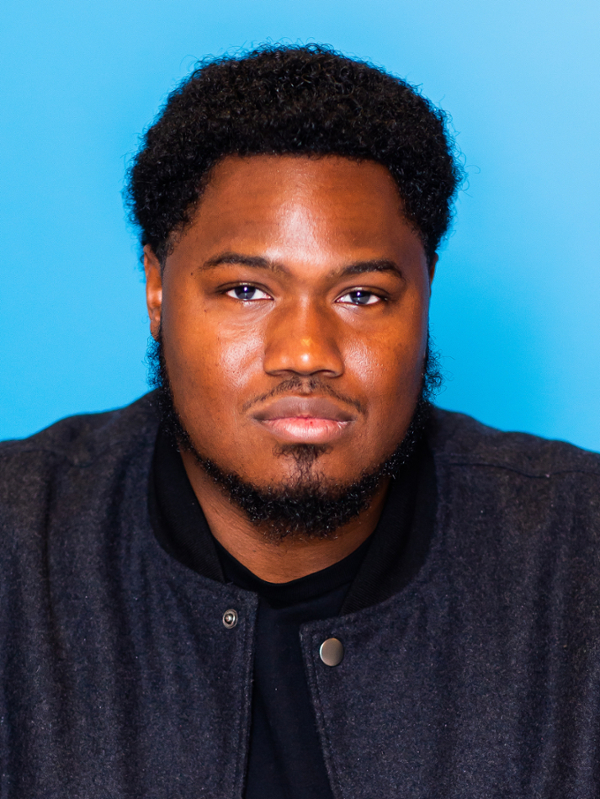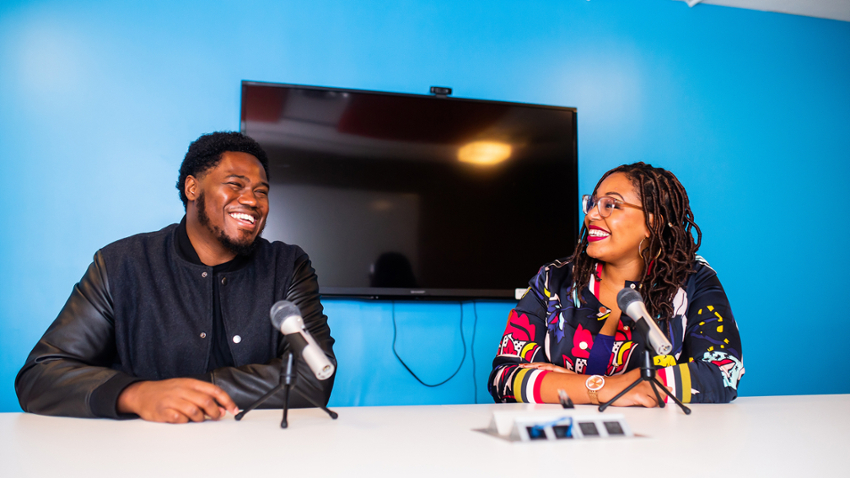
“There are definitely voices missing from policy conversations,” says Brian Kennedy, MPP’16. “But we know that most communities, regardless of their professions, their incomes—they’re talking about policy issues that directly impact them. After the 2016 election, we wanted to take the tools and information that we had as trained policy analysts and bring that to people who are having these conversations in their daily lives.”
Thus was born “At the Intersection,” a podcast featuring Kennedy and co-host Marion Johnson. They released 20 episodes in their first year and intend to continue releasing new episodes every two weeks. Together, Kennedy and Johnson dig deep into their topics (each episode lasts about one hour), bringing historical and cultural context to policy issues of the day.
“When people have these conversations, they’re not just talking about whether a policy is good or bad. It’s intertwined with pop culture, with our individual identities, with history,” he says. Their podcast tries to tease out those intersections rather than compartmentalizing policy in a vacuum. In an episode about gun control, for example, the hosts discussed their personal histories with the topic, how gun culture is perpetuated in movies, and the long history of gun control debates in the U.S.
Despite the many hours he puts into each episode, Kennedy’s work on the podcast is independent of his day job as a policy analyst for the North Carolina Budget and Tax Center, where he focuses on poverty alleviation and the social safety net in North Carolina. His job includes tracking how specific policies are impacting different populations of North Carolinians and working with partners who are lobbying for specific legislation. He also helps run an intensive four-day summer institute for college students interested in policy, a new program he says is loosely based on the MPP capstone.
“Almost everything I took out of the MPP program I’m using as a policy analyst,” he says, “especially the focus on writing and communicating succinctly. I’ve worked with a lot of other MPPs and I’ve learned that some schools send students out into the world as perfectly polished data analysts. Other schools, like Heller, send grads out with the tools to understand data and models, and also with the skills to understand whether a policy is going to help people or hurt people. The most important thing someone with this degree can do is speak up and make sure that the decisions we’re making will improve folks’ lives.”
For the podcast, Kennedy hopes to continue providing listeners with the historical and cultural context to understand policies that matter to them. In particular he plans to have more guest experts on the show, and to do more live events. He says, “I just really want to continue hearing different opinions on these topics. I’ve been blown away by all the different perspectives out there on what people think of as very simple issues.”

